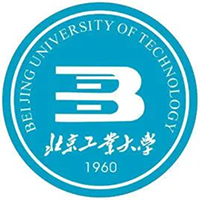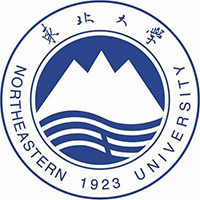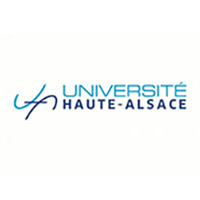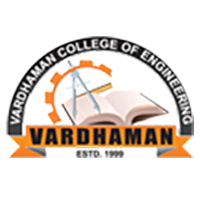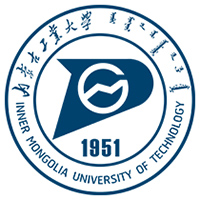General Chair

Witold Pedrycz
Professor, IEEE Life Fellow, University of Alberta, Edmonton, Canada;
Polish Academy of Sciences, Warsaw, Poland.
Research field: Computational intelligence; Granular computing; Machine learning.
Witold Pedrycz (IEEE Life Fellow) is Professor in the Department of Electrical and Computer Engineering, University of Alberta, Edmonton, Canada. He is also with the Systems Research Institute of the Polish Academy of Sciences, Warsaw, Poland. Dr. Pedrycz is a foreign member of the Polish Academy of Sciences and a Fellow of the Royal Society of Canada. He is a recipient of several awards including Norbert Wiener award from the IEEE Systems, Man, and Cybernetics Society, IEEE Canada Computer Engineering Medal, a Cajastur Prize for Soft Computing from the European Centre for Soft Computing, a Killam Prize, a Fuzzy Pioneer Award from the IEEE Computational Intelligence Society, and 2019 Meritorious Service Award from the IEEE Systems Man and Cybernetics Society. Professor Pedrycz serves as an Editor-in-Chief of Information Sciences, Editor-in-Chief of WIREs Data Mining and Knowledge Discovery (Wiley), and Co-editor-in-Chief of J. of Data Information and Management (Springer).
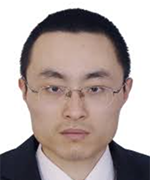
Yudong Zhang
Professor, IEEE Senior Member, Southeast University, China.
Research field: Deep learning; Convolutional neural networks; Graph convolutional networks; Attention networks; Explainable AI; Biomedical image analysis; Bio-inspired computing; Pattern recognition; Transfer learning; Medical sensor.
Prof. Yudong Zhang serves as a Professor at Southeast University, China. He is the Fellow of IET, Fellow of EAI, and Fellow of BCS. He is the Senior Member of IEEE, IES, and ACM. He is the Distinguished Speaker of ACM. He was included in Most Cited Chinese Researchers (Computer Science) by Elsevier from 2014 to 2018. He was 2019, 2021 & 2022 recipient of Clarivate Highly Cited Researcher. He is included in World's Top 2% Scientist by Stanford University from 2020 to 2022. He won Information Fusion 2022 Best Paper Award, etc. His three papers are included in Research Excellence Framework (REF) 2021. He has (co)authored over 400 peer-reviewed articles in the journals: Ann Oncol, JACC, JAMA Psychiatry, IJIM, Inf Fus, IEEE TFS, IEEE TII, IEEE TIP, IEEE TMI, IEEE IoTJ, Neural Networks, IEEE TITS, Pattern Recognition, IEEE TGRS, IEEE JBHI, IEEE TCSVT, IEEE TETCI, IEEE TCSS, IEEE JSTARS, IEEE TNSRE, IEEE SJ, ACM TKDD, ACM TOMM, IEEE/ACM TCBB, IEEE TCAS-II, IEEE JTEHM, ACM TMIS, etc. There are more than 60 ESI Highly Cited Papers and 5 ESI Hot Papers in his (co)authored publications. His citation reached 24192 in Google Scholar (h-index 86). He is the editor of Neural Networks, IEEE TITS, IEEE TCSVT, etc. He has conducted many successful industrial projects and academic grants from NIH, Royal Society, GCRF, EPSRC, MRC, BBSRC, Hope, British Council, Fight for Sight, and NSFC. He has given over 120 invited talks at international conferences, universities, and companies. He has served as (Co-)Chair for more than 60 international conferences and workshops (including more than 20 IEEE or ACM conferences). His research outputs have been reported by more than 50 news press, such as Reuters, BBC, Telegraph, Physics World, UK Today News, EurekAlert! Science News, India Times, Association of Optometrists (AOP) news, Medical Xpress, etc.
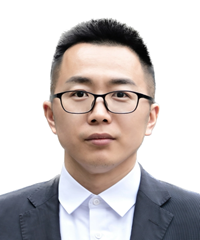
Shunli Wang
Professor, IET Fellow, IEEE Member, Inner Mongolia University of Technology, China.
Research field: Modeling and state estimation for energy storage systems; New energy measurement and control; Optimization strategy; Energy management; Battery system modelling.
Wang Shunli, professor, doctoral supervisor, vice president of the Smart Energy Storage Research Institute, academic dean of the School of Electric Power of Inner Mongolia University of Technology, academician of the Russian Academy of Natural Sciences, IET Fellow, IEEE Member, academic leader of the China Electrical Safety and Quality Testing Center, one of the first academic and technical leaders of China Science and Technology City, and one of the top 2% scientists in the world. He mainly focuses on the major strategic needs of the new energy and energy storage system industry, relying on the Academician Expert Workstation of Large-Scale Energy Storage Technology, the Engineering Research Center of the Ministry of Education for Large-Scale Energy Storage Technology, and the Smart Energy Storage Research Institute to focus on the research of green and low-carbon energy storage for smart grids. Professor Wang has published 258 SCI core library retrieval articles, 173 articles in JCR Q1 and TOP journals, 34 highly cited/hot articles, 52 authorized invention patents/standards/software copyrights, 7 books published in internationally renowned publishers such as Elsevier and IET, and won 7 awards at the provincial and ministerial levels, including 2 international gold awards. He has served as the chairman of international conferences 27 times, 4 editors of international journals, and won 13 scientific and technological awards such as the Gold Award at the 48th Geneva Invention Exhibition. He is also a member of the New Energy and Energy Storage System Control Committee of the Chinese Automation Society, a member of the System Simulation Professional Committee of the Chinese Automation Society, a member of the System Simulation Professional Committee of the Chinese Automation Society, a senior member of the Chinese Automation Society, and a member of the China Power Supply Society.
Co-Chair
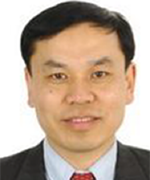
Jingsha He
Professor, Beijing University of Technology, China.
Research field: Computer networks; Information safety; 3D printing; Big data and cloud computing security; Digital forensics.
Graduated from University of Maryland, he has worked in IBM Corp., MCI Communications Corp., GRIC Communications, Inc., etc. in America, and got 15 American patents for invention. In 2003, he was introduced to Beijing University of Technology. At present, he has published 261 papers in international journals and conference proceedings, and got 58 Chinese patents for invention, presided over more than 30 projects as well, such as National Natural Science Foundation of China, 863 project, etc.
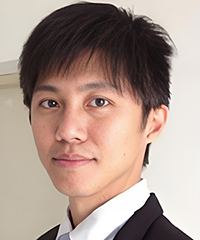
Chien-Ming Chen
Associate Professor, School of Artificial Intelligence, Nanjing University of Information Science and Technology, China.
Research field: Network security; Blockchain; Big data; Artificial intelligence; Data mining.
Chien-Ming Chen is currently an Associate Professor with the School of Artificial Intelligence (School of Future Technology), Nanjing University of Information Science and Technology, China. He received his Ph.D. from the Department of Computer Science, National Tsing Hua University, Taiwan in 2010. He has published about 150 SCI-indexed research articles in refereed journals (including ACM/IMS TDS, IEEE TII, IEEE TDSC, IEEE TPDS, IEEE TIFS, IEEE TITS, IEEE TC, IEEE TMM, IEEE SysJ, IEEE IOTJ, IEEE Networks, ACM TMIS, ACM OSR), 3 edited books, and 17 patents. He is the Associate Editor/Editor of various SCI journals, and Guest Editor for several SCI journals incuding IEEE JBHI, IEEE TCE, etc. He is the Senior Member of IEEE.
Organizing Committee Chair
Ronghua Li, Dean of the School of Electrical Engineering, Dalian Jiaotong University, China
Qingsheng Feng, Vice Dean of the School of Electrical Engineering, Dalian Jiaotong University, China
Fujian Ma, Vice Dean of the School of Mechanical Engineering, Dalian Jiaotong University, China
International Scientific Committee Chair
Chun-Yi Su, Concordia University, Canada
Dragan Peraković, University of Zagreb, Croatia
Francesco Zirilli, Sapienza Universita Roma, Italy
Joel J. P. C. Rodrigues, Federal University of Piauí, Brazil
Marcin Paprzycki, Polish Academy of Sciences, Poland
Pascal Lorenz, University of Haute Alsace, France
Sos Agaian, City University of New York, USA
Xiaodong Liu, Edinburgh Napier University, UK
Yang Yue, Xi'an Jiaotong University, China
International Scientific Committee Member
Aarti Amod Agarkar, Vishwakarma Institute of Technology, India
A.B Feroz khan, Syed Hameedha Arts and Science College, India
Adrian David Cheok, Nanjing University of Information Science and Technology, China
Ahmed Mateen Buttar, University of Agriculture Faisalabad, Pakistan
Ajay B. Gadicha, P. R. Pote Patil College of Engineering and Management, India
Alessio Faccia, University of Birmingham - Dubai Campus, UAE
Alex Mathews, Bethany College, USA
Aizaz Chaudhry, Carleton University, Canada
Azlan Mohd Zain, Universiti Teknologi Malaysia, Malaysia
Bimal K. Bose, The University of Tennessee, USA
Boddu Raja Sarath Kumar, Raja Sarath Kumar Boddu, Raghu Engineering College, India
Boris Andrievsky, Baltic State Technical University, Russia
Daehee Seo, Sangmyung University, South Korea
Danilo Avola, Sapienza University of Rome, Italy
Debashis De, Maulana Abul Kalam Azad University of Technology, India
Deepak Kumar Panda, Amrita Vishwa Vidyapeetham University, India
Dimitrios A. Karras, National and Kapodistrian University of Athens (NKUA), Greece
Enaul Haq Shaik, Enaul Haq Shaik, Vasireddy Venkatadri International Technological University, India
Fanyi Meng, Tianjin University, China
Gajendra Sharma, Kathmandu University, Nepal
Galina Ilieva, Paisii Hilendarski University of Plovdiv, Bulgaria
George K. Adam, University of Thessaly, Greec
Gerald Penn, University of Toronto, Canada
Gheorghe Grigoras, Technical University of Iasi, Romania
Ghezlane Halhoul Merabet, Smart Systems Laboratory, ENSIAS, Morocco
Hao Ying, Wayne State University, USA
Haibin Zhu, Nipissing University, Canada
Hamed Taherdoost, University Canada West, Canada
Hasmat Malik, Universiti Teknologi Malaysia, Malaysia
Heidari Arash, University of Trento, Italy
Hugo Morais, Universidade de Lisboa, Portugal
Jacek M. Zurada, University of Louisville, USA
Jamshed Iqbal, University of Hull, UK
Janusz Kacprzyk, Polish Academy of Sciences, Poland
Jawwad Nasar Chattha, University of Management and Technology, Pakistan
Jay Kumar Pandey, Shri Ramswaroop Memorial University, India
Jehad M. Hamamreh, Antalya Bilim University, Turkey
Jiliang Zhang, Northeastern University, China
Jingmin Li, Dalian University of Technology, China
Jing Zhang, Emory University, USA
Jixin Ma, University of Greenwich, UK
João Manuel R. S. Tavares, Universidade do Porto, Portugal
Joshuva Arockia Dhanraj, Dayananda Sagar University, India
June Tay, Singapore University of Social Sciences, Singapore
K. Thamizhmaran, Govt. College of Engineering, Bodinayakkanur, India
K. Vasudevan, Indian Institute of Technology Kanpur, India
Kali Charan Rath, GIET University, India
Kaya Kuru, University of Central Lancashire, UK
Khayyam Salehi, Shahrekord University, Iran
Kuan Yew Wong, Universiti Teknologi Malaysia, Malaysia
Kumar Rahul, National Institute of Food Technology Entrepreneurship and Management, India
Larbi Boubchir, University of Paris 8, France
Li Cheng, University of Alberta, Canada
Lin Wang, Dalian Jiaotong University, China
Ljiljana Trajkovic, Simon Fraser University, Canada
Lorna Uden, The University of Staffordshire, UK
Lounis Adouane, Université de Technologie de Compiègne, France
Luis Martínez López, University of Jaén, Spain
Luisa Maria Arvide Cambra, University of Almeria, Spain
M. A. Jabbar, Vardhaman College of Engineering, India
Madihah Mohd Saudi, Universiti Sains Islam Malaysia, Malaysia
Maki Habib, The American University in Cairo, Egypt
Marco Cococcioni, University of Pisa, Italy
Md Abdus Samad Kamal, Gunma University, Japan
Md. Shamsul Arefin, Bangladesh University of Business and Technology, Bangladesh
Mehdi Gheisari, Islamic Azad University, Iran
Mellah Hacene, Bouira University, Algeria
Michael Agyemang Adarkwah, Friedrich Schiller University Jena, Germany
Michael Tribelsky, Lomonosov Moscow State University, Russia
Minwoo Jake Lee, University of North Carolina Charlotte, USA
Mohamed-Slim Alouini, King Abdullah University of Science & Technology, Saudi Arabia
Mohd. Faisal Khan, Aligarh Muslim University, India
Mojtaba Ahmadieh Khanesar, University of Nottingham, UK
Muhammad Adil, Texas Southern University, USA
Muhammad Attique Khan, HITEC University, Pakistan
Muhammad Usman, University of Science and Technology Beijing, China
Nebojša Bačanin-Džakula, Singidunum University, Serbia
Neil Gordon, University of Hull, UK
Nilgun Baydogan, Istanbul Technical University, Turkey
Obradovic Zarema, University of Sarajevo, Bosnia and Herzegovina
Omid Mahdi Ebadati E., Kharazmi University, Iran
P. M. Siva Raja, Amrita Vishwa Vidyapeetham, India
Pankaj Arora, Birla Institute of Technology & Science, India
Paola Barra, University of Naples Parthenope, Ital
Patrick Siarry, Université Paris-Est Créteil, France
Philip W. T. Pong, New Jersey Institute of Technology, USA
Prashan Premaratne, The University of Wollongong, Australia
Raffaele Di Gregorio, University in Ferrara, Italy
Rajdeep Chakraborty, Rajdeep Chakraborty, SAGE University Indore, India
Rao Li, University of South Carolina Aiken, USA
Raul Campilho, Instituto Superior de Engenharia do Porto, Portugal
Ravipudi Venkata Rao, S. V. National Institute of Technology, India
Riman Mandal, Galgotias University, India
Robert S Laramee, University of Nottingham, UK
Robert Wu, University of Technology Sydney, Australia
S. Masoud Barakati, University of Sistan and Baluchestan, Iran
Samrat Ray, International Institute of Management Studies, India
Sathishkumar V E, Sunway University, Malaysia
Seppo Sirkemaa, University of Turku, Finlan
Seyed Mohammad Ayyoubzadeh, Tehran University of Medical Sciences, Iran
Shashikant Patil, Atlas SkillTech University, India
Shabir Ahmad Parah, University of Kashmir, India
Siddhartha Bhattacharyya, VSB Technical University of Ostrava, Czech Republic
Smain Femmam, UHA University, France
Sohaib Latif, Grand Asian University Sialkot, Pakistan
Sri Niwas Singh, Atal Bihari Vajpayee- Indian Institute of Information Technology and Management, India
Sunday Adeola Ajagbe, Ladoke Akintola University of Technology, Nigeria
Sudeep Tanwar, Nirma University, India
Thameur Dhieb, University of Sfax, Tunisia
Tokeer Ahmad, Jamia Millia Islamia, India
Umesh C. Pati, National Institute of Technology, India
Valentina Emilia Balas, Aurel Vlaicu University of Arad, Romania
Venkatesan Chandrasekaran, Sri Venkateswara College of Engineering, India
Vinayak Ashok Bharadi, Finolex Academy of Management and Technology, India
Vishnu S. Pendyala, San Jose State University, USA
Vladan Devedzic, University of Belgrade, Serbia
Wali Khan Mashwani, Kohat University of Science & Technology, Pakistan
Xiangjie Kong, Zhejiang University of Technology, China
Yilun Shang, Northumbria University, UK
Yousef Farhaoui, Moulay Ismail University, Morocco
Zaib Ullah, Università Telematica Giustino Fortunato, Italy
Zhaohui Cen, Technology Innovation Institute, UAE
Zhengming Gao, Jingchu University of Technology, China
Sponsors
Dalian Jiaotong University
Beijing University of Technology
Northeastern University
Zhengzhou University
University of Haute - Alsace – France
Vardhaman College of Engineering, India
Inner Mongolia University of Technology



